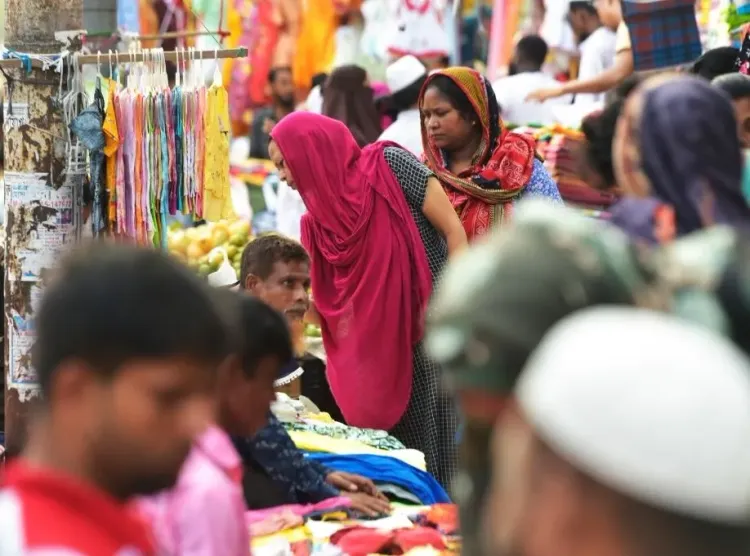Is Bangladesh Facing the Highest Inflation in South Asia at Over 8%?

Synopsis
Key Takeaways
- Bangladesh's inflation rate reached over 8%, the highest in South Asia.
- Economic stagnation is linked to a significant downturn in investments.
- Poverty rates are rising, with estimates around 28%.
- The government is relying heavily on borrowing to finance budget deficits.
- Public trust in the government is waning amid ongoing economic hardships.
New Delhi, Nov 27 (NationPress) The economy of Bangladesh has hit a standstill due to a significant downturn in investments, with little to no new job opportunities being generated. As reported by the Prothom Alo news outlet, the country's inflation rate has surged to over 8 percent, marking the highest in South Asia.
The Bangladesh Bureau of Statistics reported an inflation rate of 8.17 percent in October. In comparison, India stands at a mere 0.25 percent, while Sri Lanka, grappling with bankruptcy, reports an inflation rate of 2.1 percent.
In Nepal, following the fall of the KP Sharma Oli government due to protests from Gen-Z, a new interim government assumed control on September 12 and set an election date for March 5 next year, which has contributed to a decline in inflation to 1.47 percent.
Pakistan is now the only South Asian nation with an inflation rate approaching that of Bangladesh, sitting at 6.2 percent. Meanwhile, Bhutan and the Maldives report inflation rates of 3.93 percent and 3.87 percent, respectively.
This situation has placed a substantial burden on the citizens of Bangladesh, who are enduring a prolonged economic crisis characterized by declining real incomes and rising poverty levels. Private surveys indicate a poverty rate of roughly 28 percent, while government statistics suggest a rate of 18.7 percent as of 2022.
The article further notes that large delegations are venturing abroad, and significant funds have been allocated to changing police uniforms, even as daily expenses for the populace continue to climb. Their incomes are not keeping pace, leading to a shrinking job market where many are unable to access their bank deposits. Trust in the government is waning amid unchecked law and order issues, resulting in widespread instability and uncertainty. Consequently, public expectations for a significant drop in inflation remain very low.
Upon the interim government's inception, the year-on-year increase in government borrowing was 11.61 percent, while private sector credit growth stood at 9.86 percent. This borrowing has now escalated to 27.22 percent, with private sector credit growth dwindling to 6.29 percent.
This data indicates that the government is increasingly reliant on borrowing from the banking system to manage its budget deficit, with revenues lagging and expenses outpacing them. In June 2023, the government recorded its highest-ever bank borrowing to cover the budget deficit, reaching approximately 35 percent. The current interim government has now set a second-highest record, according to the article.









